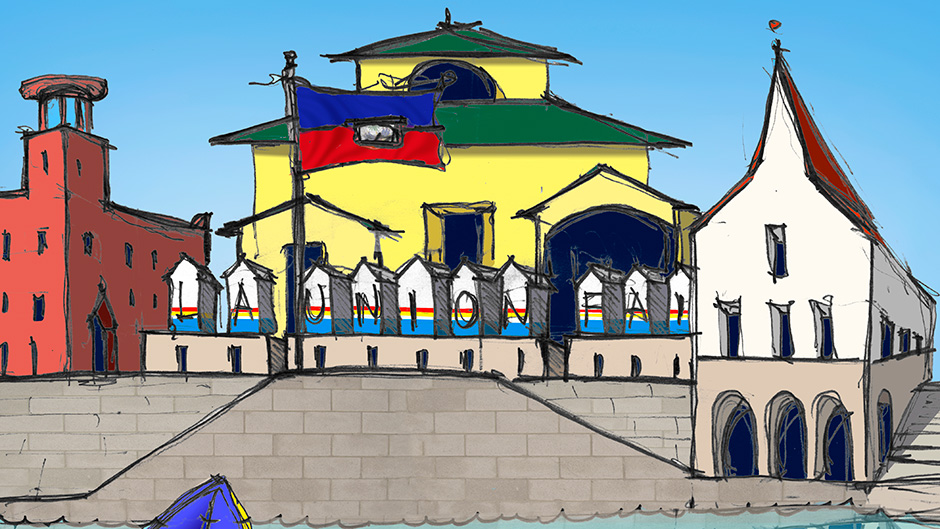U-SoA Professors Jaime Correa and Steven Fett will be presenting their paper “Success from the Bottom Up – Lessons Learning in Haiti’s Arcahaie Region” at the 104th Association of Collegiate Schools of Architecture (ACSA) Annual Meeting in Seattle in March.
The paper focuses on work done in the Haitian coastal region of Arcahaie after the 2010 earthquake, and summarizes the results of their part of the U-SoA Center for Urban and Community Design mission to draw a regional “road map for change,” including challenges created by preconceived notions and other cultural pitfalls.
While in Haiti after the earthquake, Correa and Fett decided to produce “primitive drawings,” a tradition in modern art. The drawings are clear, direct and simple depictions of what the future of the Arcahaie region might be. “Our work consists of sketches drawn in the same manner of the vernacular drawings one can see on the facades, buses, fruit vendor stations, sidewalks, and printed material of Haiti,” Correa said. “Our intention was to bridge the gap between designers and normal citizens – people with great aspirations but no idea how to read or produce master plans.”
“Furthermore,” added Fett, “we couldn’t rely on technology or conventional architectural drawing to explain our ideas. Through the drawings, we were able to communicate with the residents and create something both symbolic and memorable.”
---
View the Haiti Special Report on UM's response to Haiti's earthquake: http://haiti.miami.edu
---
From the experience of creating the drawings, the architects worked on master plans for the area in a process they call “non-linear dynamics:” combining many versions and variations of the same plan, produced by teams of citizens and designers working together, and creating a final result agreeable to everyone.
The paper detailing all of the work was written in a very modern method of collaboration; Correa and Fett met only once, to plan the paper, and did all of the writing and editing via a “wiki” style process. The paper was written in discrete increments, according to Correa, and pasted together, edited, added, subtracted and finalized without any phone conversations or face-to-face interactions.
“The ACSA has taken a huge leap of faith by inviting Steve and me to present our paper,” Correa said. “More than just a project documentation, this paper sketches part of a complex agenda for a new paradigm of bottom-up urbanism – one which will empower normal citizens to do, once again, what they have forgotten after the industrial revolution.”
The Seattle conference, titled “Shaping New Knowledges,” is hosted at the University of Washingon and co-chaired by Robert Corser of the University of Washington and Sharon Haar of the University of Michigan. It aims to discuss the creation of new architectural knowledge including research, scholarship and creative practice.
TheACSA is a non-profit organization founded in 1912 to advance the quality of architectural education through advocacy, collaboration and more. TheACSA“provides a forum for ideas on the leading edge of architectural thought. Issues that will affect the architectural profession in the future are being examined today inACSAmembers schools,” according to the organization’s website.

